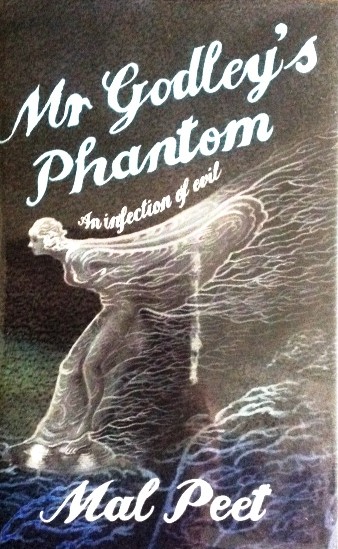Inspiring Young Readers
 posted on 01 May 2022
posted on 01 May 2022
Mr Godley’s Phantom by Mal Peet
There are few writers who better illustrate just how thin the divide is between ‘adult’ and ‘young adult’ fiction than the late Mal Peet and this posthumously published novel is a perfect example of this liminal space that he occupies.
Peet’s publisher and editor, David Fickling tells us that the author died before he had chance to do much in the way of revision to the manuscript and, as an editor, Fickling decided to make no amendments to what was left behind. As a result there are some inevitable bits of clumsiness and some ( I think ) ill-chosen uses of swear words that don’t quite fit the tone of the rest of the writing but, it has to be said, as a raw, unedited manuscript this is pretty damned impressive.
This is a story that ranges over a whole host of complex issues – the traumatic impact of war, the consequences of murder, complex human relationships – and still manages to be a delightfully ambiguous ghost story with an almost tongue-in-cheek Edwardian feel to it.
When Martin Heath, a young man suffering from ‘shell-shock’ (or PTSD as we’d now think of it), gets offered a job as a general help to the frail Mr Godley, he’s initially sceptical but eventually drawn into the job by the prospect of driving Mr Godley’s luxurious Rolls Royce Phantom III Sedanca de Ville. Godley is well-off but frail and lives in remote seclusion with only an attractive live-in personal maid and a part-time cook who comes in each day to prepare the meals.
There are clearly immediate tensions – some of them sexual – between Heath and the maid and the rather mysterious Mr Godley seems to have an agenda of his own. Then one day Mr Godley appears to take a train for a journey from which he never returns…..
At this point I’m going to take the same line here as John Burnside who reviewed the book for The Guardian back in 2018:
“It would be wrong to go into detail about the plot, even though this novel depends more for its suspense on existential and philosophical pressures than on purely narrative tensions. However, it is a joy to watch Peet raise one set of expectations then leave them hanging so that another set can materialise, the book constantly sliding between one genre and another until something unforeseen emerges. There is an unconventional but altogether persuasive love story at the heart of the narrative, as well as a detective novel in embryo, offering all the fun of Agatha Christie-style problem solving with none of the po‑faced righteousness of conventional morality.”
What I will say is that the last third of the book takes on the characteristics of a rather unusual ghost story that moves the book from being a detective murder procedural to something that no longer abides by the rules of the solid world. Again, Burnside puts this elegantly enough:
"This is a profound, elegant novel that achieves greatness by creating its own, self-regulating world in which ordinary logic does not apply – a dreamworld, if you like, but no less real for that."
Now, back to the thorny question of whether this is an ‘adult’ or ‘young adult’ novel. The answer is that I think it’s almost certainly either – perhaps it’s better just described as a really good novel that anyone over the age of 12 could enjoy reading. Some people might worry about younger readers encountering the swearing – there’s not much but it is graphic when it happens – and some might feel that the themes are very adult but anyone who thinks children never come into contact with these things in their everyday life at school is really very naïve. Peet challenges younger readers to think for themselves and never patronises them while keeping his storytelling constantly accessible and always making the turning of the page a must.
Both paperback and hardback copies of the book are easily available on second hand sites for nothing much more than a few pounds.
Terry Potter
May 2022